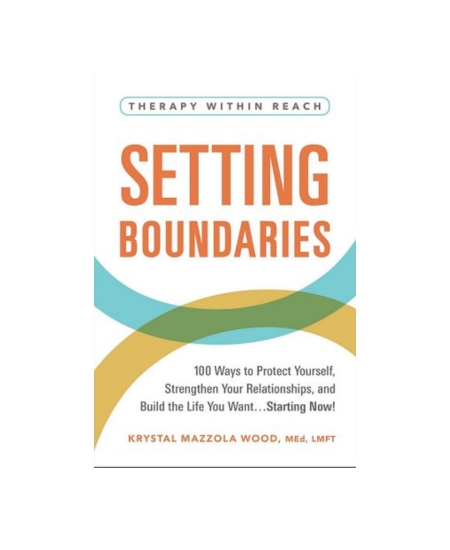How Therapy Helps
February 3, 2019

How Therapy Helps
Being able to confide in family and close friends enhances overall wellbeing and life satisfaction. Most of us have people we can turn to in times of need and find real solace in these relationships. But while these connections are vital, they may not be as carefree as we’d like. Sometimes there are situations that are so complicated, sensitive, or confusing that talking about them feels awkward, embarrassing, or simply too scary. These situations offer opportunities to experience the benefits of therapy.
Advantages of Therapy
- Therapy provides a time and place to reflect on and discuss specific situations and relationships without the fear of being judged. (if you are worried about what your therapist might be thinking, you may want to try working with someone else.)
- Therapists are trained to remain neutral and calm while listening to the details of difficult experiences. You are not likely to shock, frighten, or overwhelm your therapist even if you feel overwhelmed by what you want to disclose.
- Within the “safe” therapy environment, you can speak candidly about how you really think, feel, and behave. You do not need to worry about saying something that alters the way someone in your daily life perceives or interacts with you.
- A therapist is trained to increase the amount of insight you have into yourself and those close to you. Knowing what is hard for you (e.g. transitions, large groups, public speaking, sudden changes in plans) and understanding what is difficult for those we love (e.g. being patient, not knowing, being criticized) involves exploring the past and discovering why and how certain situations or ways of being are so challenging.
- Because a therapist does not know you well and is not a part of your daily life, we ask questions and your answers help you unravel why you think, feel, and act the way you do. Having distance and unfamiliarity with your history allows a therapist to hear and understand your concerns from an objective perspective.
- Therapy can provide psycho-education. There is a wealth of research that informs the practices of psychology. A therapist can explain what is known about the human experience. (An example: our pre-wired reaction to a perceived threat which is often referred to as the “fight, flight, or freeze” response.)
- The opportunity to talk openly to a therapist can foster your ability to determine whether you have appropriate and realistic expectations for yourself and people in your life. (If we discover that every time our in-laws visit we are disappointed that they don’t help with household chores, we might need to adjust expectations.) Wishing that others would become different than they are can lead to anger and increased levels of stress. Therapy can assist with the acceptance of people and/or situations and adjustments in expectations can result in reducing negative emotions.
- Therapists can teach new strategies for coping, and you can use therapy sessions as a place to practice these new skills. (Examples include: mindfulness, emotion regulation, distress tolerance, reframing situations, reality testing, and learning to pause before taking action.)
Therapy offers a time and place to explore our general beliefs and evaluate which may be limiting us and/or adding stress to daily life. Therapy also provides the opportunity to process and/or reflect on specific interactions or experiences with the support of a professional who can help you identify patterns. Over time, you realize certain beliefs and/or behaviors are causing stress and your therapist can offer guidance on how to make adjustments.
Determining what we can and cannot control is a beginning step. Events and actions outside our control are best accepted and managed. However, our experience with events and actions within our control is enhanced when we take the time to consider all of our options. Therapy provides a forum for determining the most appropriate, thoughtful, and effective choices.
How Therapy Helps
Being able to confide in family and close friends enhances overall wellbeing and life satisfaction. Most of us have people we can turn to in times of need and find real solace in these relationships. But while these connections are vital, they may not be as carefree as we’d like. Sometimes there are situations that are so complicated, sensitive, or confusing that talking about them feels awkward, embarrassing, or simply too scary. These situations offer opportunities to experience the benefits of therapy.
Advantages of Therapy
- Therapy provides a time and place to reflect on and discuss specific situations and relationships without the fear of being judged. (if you are worried about what your therapist might be thinking, you may want to try working with someone else.)
- Therapists are trained to remain neutral and calm while listening to the details of difficult experiences. You are not likely to shock, frighten, or overwhelm your therapist even if you feel overwhelmed by what you want to disclose.
- Within the “safe” therapy environment, you can speak candidly about how you really think, feel, and behave. You do not need to worry about saying something that alters the way someone in your daily life perceives or interacts with you.
- A therapist is trained to increase the amount of insight you have into yourself and those close to you. Knowing what is hard for you (e.g. transitions, large groups, public speaking, sudden changes in plans) and understanding what is difficult for those we love (e.g. being patient, not knowing, being criticized) involves exploring the past and discovering why and how certain situations or ways of being are so challenging.
- Because a therapist does not know you well and is not a part of your daily life, we ask questions and your answers help you unravel why you think, feel, and act the way you do. Having distance and unfamiliarity with your history allows a therapist to hear and understand your concerns from an objective perspective.
- Therapy can provide psycho-education. There is a wealth of research that informs the practices of psychology. A therapist can explain what is known about the human experience. (An example: our pre-wired reaction to a perceived threat which is often referred to as the “fight, flight, or freeze” response.)
- The opportunity to talk openly to a therapist can foster your ability to determine whether you have appropriate and realistic expectations for yourself and people in your life. (If we discover that every time our in-laws visit we are disappointed that they don’t help with household chores, we might need to adjust expectations.) Wishing that others would become different than they are can lead to anger and increased levels of stress. Therapy can assist with the acceptance of people and/or situations and adjustments in expectations can result in reducing negative emotions.
- Therapists can teach new strategies for coping, and you can use therapy sessions as a place to practice these new skills. (Examples include: mindfulness, emotion regulation, distress tolerance, reframing situations, reality testing, and learning to pause before taking action.)
Therapy offers a time and place to explore our general beliefs and evaluate which may be limiting us and/or adding stress to daily life. Therapy also provides the opportunity to process and/or reflect on specific interactions or experiences with the support of a professional who can help you identify patterns. Over time, you realize certain beliefs and/or behaviors are causing stress and your therapist can offer guidance on how to make adjustments.
Determining what we can and cannot control is a beginning step. Events and actions outside our control are best accepted and managed. However, our experience with events and actions within our control is enhanced when we take the time to consider all of our options. Therapy provides a forum for determining the most appropriate, thoughtful, and effective choices.
You may also love
Mindfulness can be integrated into your life each and every day — and in each and every moment. Learn 9 specific practices that you can try at any time to support the experience of feeling present.
9 Mindfulness Practices You Can Try Today
sign up
© Elizabeth Cronin 2025 • Legal • Website by uno dos trae • Photography by Laura lee creative





